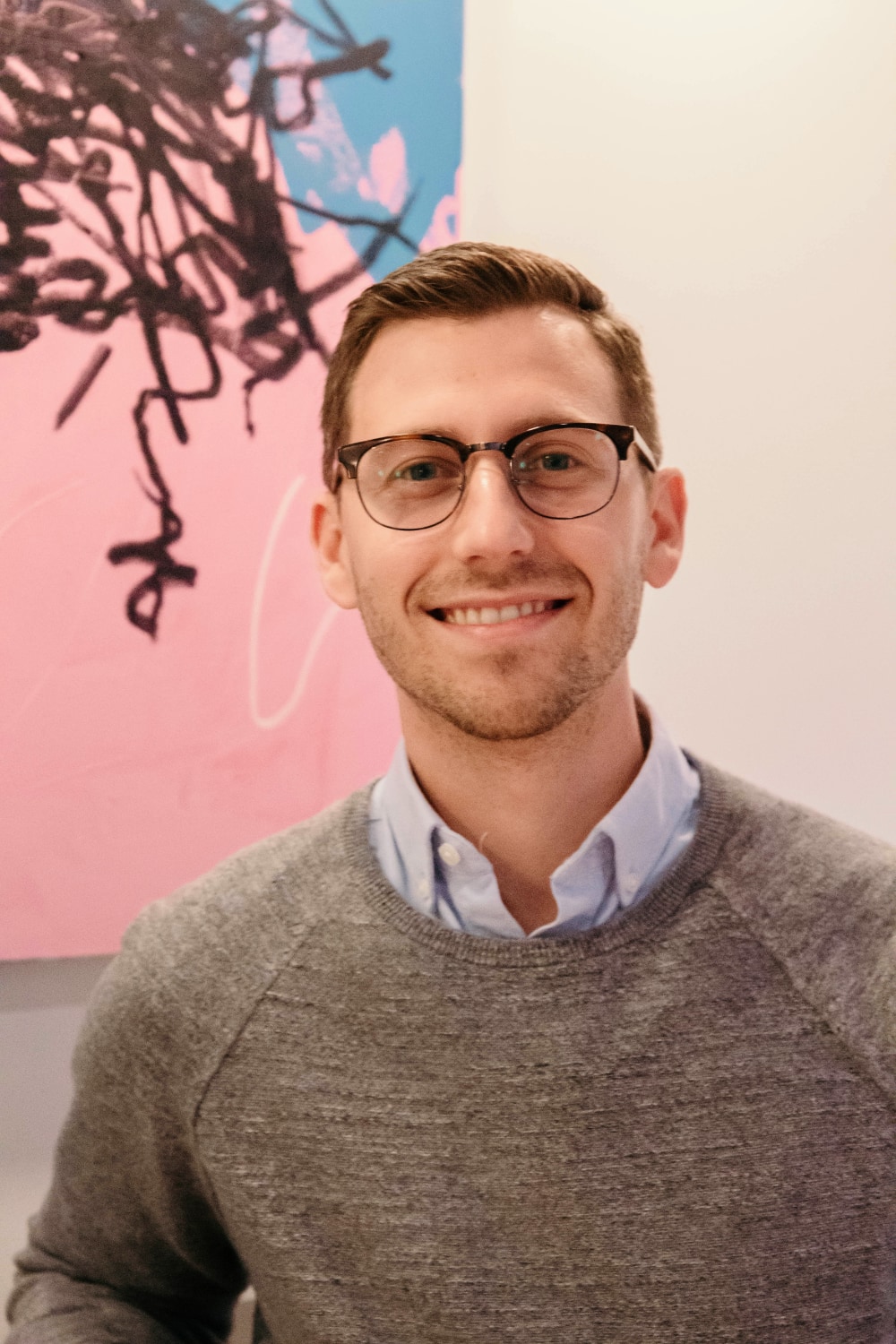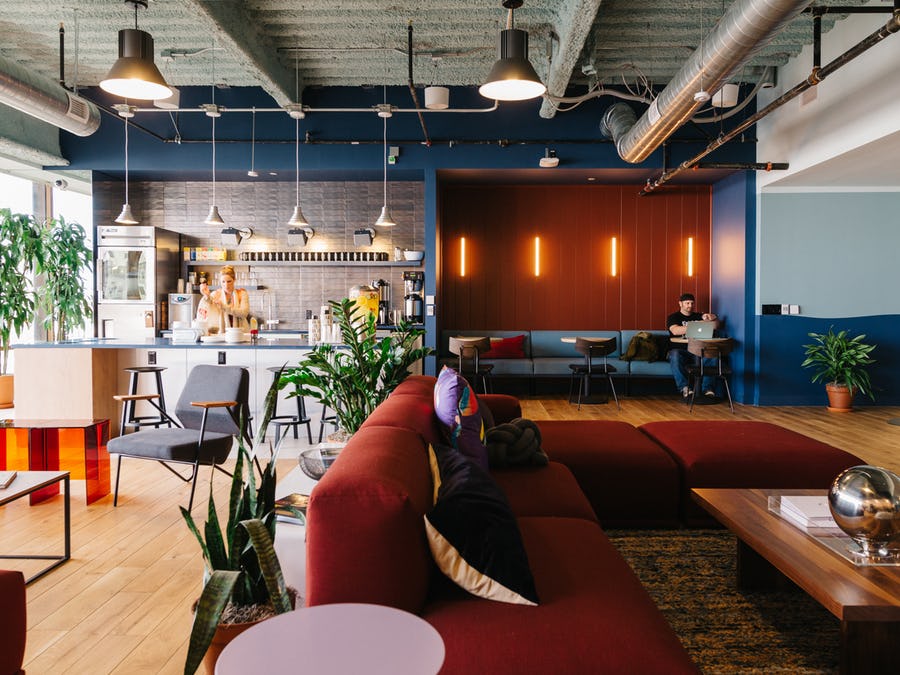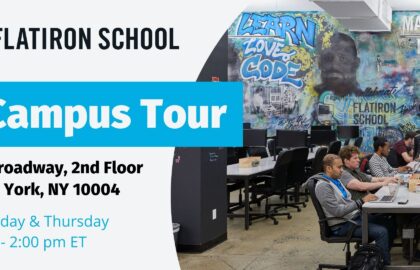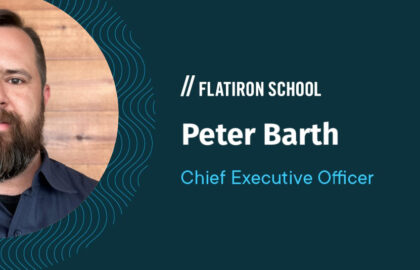We sat down with Flatiron School’s Seattle Campus Director, David Fruchter, to discuss the current landscape of tech in Seattle, and how Flatiron School is doing its part to contribute to the vibrance of the community and growth of the industry.
Seattle is a mature tech market ecosystem, and has become one of the top opportunity markets for Flatiron School. Some of the best tech enterprises are headquartered in Seattle, including Google, Facebook, Microsoft, Amazon, and Zillow— proving Seattle to be a fast-moving market. Given the maturity of the tech economy, we believe the tech gap is becoming non-existent. The ground breaking work in tech happening in Seattle is drawing people to this rainy city; closing the gap between open tech positions and appropriate talent. To be able to participate in this fast-moving market, educational organizations must focus on bringing students up to the level necessary to remain competitive in these changing times.

Within the competitive landscape of bootcamps, Flatiron School has set itself apart as an outcomes-driven organization. When we look at other institutions, the goals are typically based on graduation and matriculation, but that goal is less relevant for the key goal of the bootcamp industry: changing careers. At Flatiron School, we define our success on one metric: helping our students get jobs in tech—that’s why we’re committed to third-party verified jobs outcomes. Learn more about our Jobs Reports here.
Our Seattle Campus Director, David Fruchter, likes to think of Flatiron School as having two phases to the programs: a technical skills program paired with a career services program. Often times, students graduate from a coding bootcamp, then question how they connect this newfound skillset to the real world— and that’s where Flatiron School comes into play. We combine the technical skill set of our immersives with our career services to have the most authentic goal outcomes of getting our students jobs in tech.

When asked what he believes tech is transforming into, David said, “Our next generation of tech won’t be a minority of people that don’t know these special languages. We need to be treating this new type of language as we do traditional languages and teaching our young people coding languages.” As technology educations become more readily available, we find the tech gap closing across the United States.
As for Seattle, there is no barrier within education and technology. We have seen the tech sector become the business sector and can see companies that aren’t taking on tech quickly enough, be pushed out of the space. Additionally, we’ve seen a mass-adoption of and increase in tech. It’s no longer the case that the 1% of people coming out of college move into tech, we have so many conventional and unconventional ways for people to learn and join this next level of technology.
Seattle has proven to be a comparable city to both Silicon Beach and Valley. As Seattle is more affordable than other parts of the country, it’s become an attractive destination for the tech hungry. Seattle is consistently rated for startups in the United States. Talent coming out of Microsoft and Amazon are directly linked to the growing startup environment. While Seattle is nowhere near San Francisco with the amount of VC’s, startups and incubators, it goes pound for pound against any city in regards to the quality of tech within our world’s economy.
There’s a proven community around tech in Seattle. There are hundreds of Meetups dedicated to professionals that want to help people gain access and learn more about tech. From David, “As a professional within the education and tech sphere, I’m grateful for these people that want to help because of the generosity and passion for the work— that’s what helps us grow a community around technology.” One thing that David is focusing on as Flatiron School’s Campus Director is helping students shift their mindset around their job search. Flatiron School instructors and educators encourage students to shift their thinking from asking for a job to finding out what they are passionate about in design, data science, or software engineering and weaving that passion into their final projects. Students are encouraged to look at the broader economy to see what tech companies are doing within their passion, and to equalize the opportunity by having a conversation about your shared passions, versus asking for a job.
Many students suffer from imposter syndrome, and Flatiron School’s instructors are constantly empowering and encouraging. The first step is just getting started. All languages relate to each other, and at Flatiron School, we teach our students how to learn. We’ve placed people at Microsoft that primarily uses the coding language C-sharp, but Flatiron School doesn’t necessary instruct C-sharp. We encourage learning and understanding a competency of current languages. Similar to Spanish, French and English, all coding languages build on each other, even more so in technology! David encourages our students, “Remember, the language that you think is the end all, be all, will change. Be curious and disciplined.”




